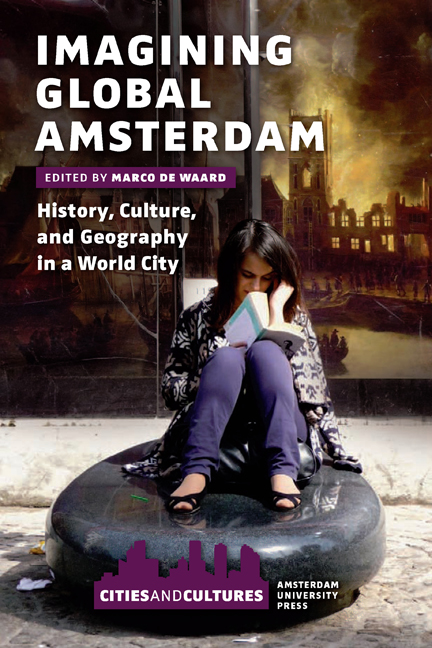9 - Imagining a Global Village: Amsterdam in Janwillem van de Wetering’s Detective Fiction
Published online by Cambridge University Press: 19 January 2021
Summary
Amsterdam is a city, but it is also a country by itself, a small nation inside a larger one.
– Geert Mak, Amsterdam: A Brief Life of the City (2001, 1)Introduction
From its very origins in the nineteenth century, crime fiction has been unequivocally and fundamentally international in outlook. Indeed, its early beginnings – the works of Edgar Allan Poe, Eugène Vidocq, Eugène Sue, Emile Gaboriau, Wilkie Collins, Arthur Conan Doyle, Dashiell Hammett, Raymond Chandler – were the result of a dialogue between at least three national literatures, while, more recently, Swedish, Icelandic, Italian, Japanese, and Hispanic literatures have become widely influential. Because crime fiction strongly depends on the use of classic formulas, conventional plot lines, and various generic traditions – classical detective fiction, the hard-boiled tradition, and the police procedural, for instance – it is intensely intertextual and dialogic, an early example of a global literary genre. Indeed, when a new author decides to adopt, adapt, or ignore the genre's various formulaic tropes and possibilities – type of detective, kind of location, variety of crime – he or she inevitably engages in a creative negotiation with a worldwide set of traditions. Undoubtedly, detective fiction's close dialogue with the film and television industries has only intensified – and complicated – this creative negotiation, ensuring crime writers and their detectives massive interest from global audiences.
The international outlook of Dutch crime fiction is a case in point. When in 1949 the Dutch diplomat, sinologist, and crime fiction aficionado Robert van Gulik (1910-67) published an English translation of an anonymous eighteenthcentury Chinese collection of crime stories, Dee Goong An (Celebrated Cases of Judge Dee), he did this with the explicit aim of introducing Western audiences to an older, Chinese crime fiction tradition. Focusing on a legendary magistrate and politician from the T’ang Dynasty (618-907), the original Judge Dee stories were a great success; this inspired van Gulik to create an internationally acclaimed series of his own around the unusual Chinese detective. Publishing his stories both in Dutch and in English, van Gulik was in fact a gifted cultural mediator, both between Eastern and Western crime fiction traditions and between the Netherlands and the English-speaking world.
- Type
- Chapter
- Information
- Imagining Global AmsterdamHistory, Culture, and Geography in a World City, pp. 169 - 186Publisher: Amsterdam University PressPrint publication year: 2012



